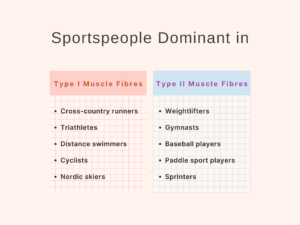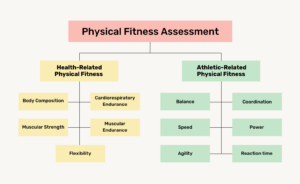Understanding the objectives of a training plan is of paramount importance. Indeed, a person should prepare himself or herself for achieving specific objectives when starting training. Training should be structured and focused. The goal of a training plan is to improve one’s physical fitness, skills, and movements, which inevitably optimises your daily performance, body composition, and health.
Training is undertaken over a long period of time and involves several physiological During this period, training is progressively and individually graded.
The Major Objectives of a Training Plan
As mentioned above, through structured and focused training plans and programmes one can improve and reach a high level of performance, health and body composition. The objectives of a training plan, which involve the development of specific attributes, correlate with the execution of various tasks throughout the plan as follows.
Multilateral Physical Improvement or General Fitness
Specific attributes such as endurance, strength, speed, flexibility, coordination, reaction, and mobility represent the multilateral development of a training programme and constitute the basic biomotor abilities in the human body. These elements are the foundation for one’s physical health.
Sport-specific Physical Development
Sport-specific physical fitness is the development of physiological characteristics that are specific to a particular sport. Some specific fitness components are more heavily emphasised in sport-specific physical development than multilateral or general physical improvement. That emphasis is, indeed, the difference between the two.
For example, a football player needs to focus more on improving muscular endurance and speed, whereas an Olympic lifter needs to focus on developing maximum strength rather than muscular endurance.
Technical Skills
One of the objectives of a training plan is to improve technical skills, which differ from sport to sport. The ability to improve technical skills is based on both sport-specific and multilateral physical development. For example, the skills required in sports such as basketball are different from those in cricket.
Psychological Elements
In a deep sense, psychological factors such as competition, confidence, fear, and laziness are illusions. However, if one doesn’t have a good understanding of himself, psychological preparation can also be one of the objectives of a training plan to optimise physical performance. For example, some may take advantage of so-called personality development and psychological traits such as discipline, confidence, courage, and tenacity for better performance and results.
Health Maintenance
A training plan should prioritise health maintenance as one of its objectives. Regular medical check-ups, maintaining balance in physical components, scheduling training sessions and recovery appropriately, ensuring good nutrition, analysing movement patterns, and fostering good mental health are particularly important in the training and coaching processes. All these prevent injuries and illness and prompt health and performance.
Injury Resistance
Generally speaking, injury in training happens when one is performing something that is beyond his or her physical and mental capacities, as well as practical knowledge and understanding of the movement. For this reason, to minimise the potential for injury and improve performance in training must develop the physical capabilities and physiological characteristics required to participate in rigorous training. Additionally, better planning, adequate nutrition, enough recovery, and optimal movement are crucial for decreasing the potential for injury.
Practical Understanding
Acquiring knowledge and a practical understanding of things related to training is one of the important objectives of a training plan. A person should know why, how and when he should perform a specific exercise or movement. Understanding and practical knowledge play crucial roles in maximising the benefits of a training plan. In addition to the physical aspects of a training plan, it’s crucial to have a comprehensive understanding of proper nutrition, optimal movement, and the impact of mental health and performance.
By looking for some good and reliable resources about nutrition, movement, exercise, and training, as well as being aware of the body and mind, one can gain practical knowledge and understanding.





